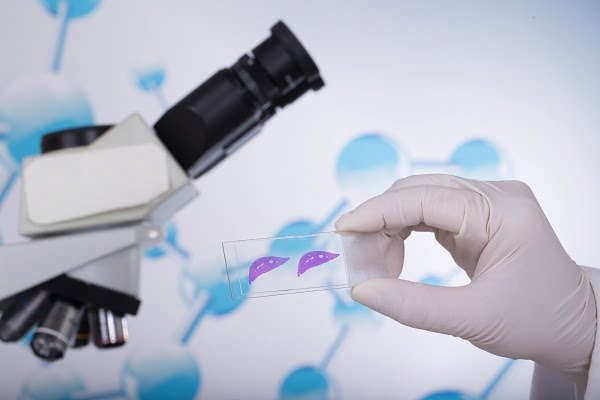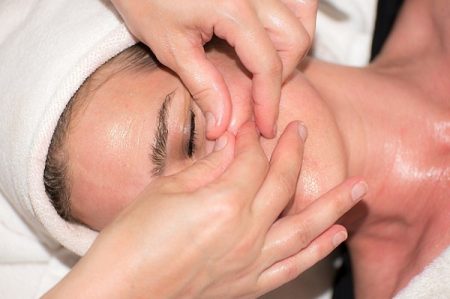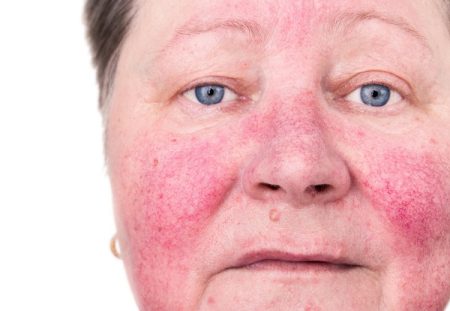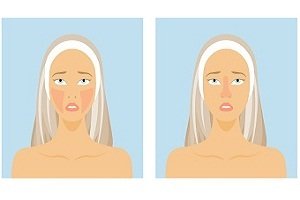How Do Doctors Diagnose Rosacea?
- Updated on: Jul 15, 2024
- 2 min Read
- Published on Apr 19, 2021

 Diagnosis of Rosacea
Diagnosis of Rosacea
Rosacea is diagnosed based on its typical symptom of facial redness or blushed skin and other symptoms such as flushing or dry skin.
Rosacea is largely underdiagnosed, and most people with the disease do not know that they have it. The facial redness in rosacea may be temporary and come and go very quickly. People sometimes, therefore, ignore it.
What tests do health care professionals use to diagnose rosacea?
There’s no particular test for rosacea. Doctors generally diagnose rosacea based on the history of your symptoms and a physical examination of the skin.
Sometimes, your doctor may ask you undergo certain diagnostic tests to rule out other similar conditions, such as acne, psoriasis, eczema, or lupus.
If rosacea affects your eyes, your doctor may refer you to an eye specialist (ophthalmologist).
In rare cases, a skin biopsy may be required to help confirm the diagnosis of rosacea and rule out other possibilities.
A noninvasive test called a skin scraping may be performed by your doctor to rule out the possibility of a skin mite infestation, which shows similar symptoms and may trigger rosacea.
Your doctor may perform a skin culture in some extreme cases to help exclude other causes of facial skin problems like staph infections or herpes infections.
Usually, blood tests are not required. But sometimes, your doctor may ask for blood tests less to rule out certain causes of flushing, raises, lupus, and other autoimmune conditions.
Which doctor should I consult for the diagnosis and treatment of rosacea?
Dermatologists are physicians who are specialized in the diagnosis of rosacea and other skin problems. If you suspect rosacea, you should contact a dermatologist. If you meet a general physician, it is likely that he or she will refer you to a dermatologist.
Other skin diseases that look like rosacea
Generally, rosacea symptoms are quite clear to a physician. But, sometimes, there are some health conditions that may resemble to rosacea symptoms. In such cases, the diagnosis of rosacea may not be easy. These diseases are:
- Lupus
- Eczema
- Demodex folliculitis
- Contact dermatitis
- Certain allergies
- Herpes simplex
- Impetigo
- Dermatomyositis
- Perioral dermatitis
- Carcinoid syndrome
Recent researches found an association between rosacea and certain diseases such as diabetes, inflammatory bowel disease, and heart diseases.












